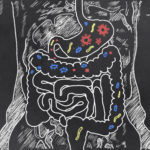Fats: the Good The Bad & the Ugly
In the complex world of nutrition, fats have often been categorized into “good” and “bad” types, influencing dietary choices and guidelines. Understanding these distinctions and their implications on health is crucial, especially in light of the latest research which continues to evolve our understanding of dietary fats. This article will delve into the various types of fats, identifying which are considered beneficial or detrimental to health, and provide examples based on the most recent scientific findings.
Good Fats
Good fats are primarily unsaturated fats, which are found in various plant and fish sources. These fats are deemed beneficial because they can improve blood cholesterol levels, stabilize heart rhythms, and offer other health benefits.
1. Monounsaturated Fats (MUFAs)Monounsaturated fats are liquid at room temperature and are thought to improve blood cholesterol levels, which can decrease your risk of heart disease. Examples include olive oil, avocados, and nuts like almonds, hazelnuts, and pecans. Research suggests that incorporating MUFAs into your diet can have beneficial effects on heart health and weight management.
2. Polyunsaturated Fats (PUFAs)
Polyunsaturated fats are essential fats, meaning they are required for normal body functions but your body can’t make them, so you must get them from food. They are found in plant and animal foods, such as salmon, vegetable oils, and some nuts and seeds. PUFAs include omega-3 and omega-6 fatty acids, which are known for their roles in brain function and normal growth and development. Omega-3 fatty acids, found in fatty fish like salmon, are particularly noted for their cardiovascular benefits and potential to reduce inflammation.
Bad Fats
Bad fats include trans fats and certain saturated fats, which have been linked to an increased risk of heart disease and other health issues.
1. Saturated Fats
Saturated fats are typically solid at room temperature and are found in animal products like meat and dairy, as well as in some tropical oils. While not all saturated fats are equally harmful, excessive intake of certain sources can raise the level of cholesterol in your blood, increasing your risk of heart disease and stroke. However, recent studies suggest that the relationship between saturated fats and heart disease might be more complex than previously thought, and the context of the overall diet plays a crucial role.
2. Trans Fats
Trans fats are the most harmful type of dietary fat. They are created in an industrial process that adds hydrogen to liquid vegetable oils to make them more solid. Trans fats are found in many fried foods, baked goods, and processed snack foods. These fats have been linked to an increased risk of heart disease, stroke, and type 2 diabetes. In recent years, there has been a significant effort to reduce or eliminate trans fats from food products.
The Latest Research
The latest research continues to refine our understanding of dietary fats. Studies now emphasize the importance of the type of fat consumed over total fat intake and suggest focusing on whole-food sources of good fats while limiting processed and high saturated fat foods. For example, a 2017 study in the American Journal of Clinical Nutrition found that replacing saturated fats with unsaturated fats, especially polyunsaturated fats, was associated with reduced rates of cardiovascular disease.
Moreover, the role of context and dietary patterns is increasingly recognized. A diet high in good fats but also rich in vegetables, fruits, whole grains, and lean protein is associated with better heart health outcomes than a diet high in good fats but poor in other nutrients.
Conclusion
In conclusion, understanding the types of fats and their impact on health is essential for making informed dietary choices. By prioritizing unsaturated fats from plant and fish sources and limiting intake of saturated and trans fats, individuals can support their heart health and overall well-being. As research evolves, it becomes clear that the context of the entire diet is significant, underscoring the importance of a balanced, nutrient-rich dietary pattern.
Healthy Fats
1. MCT Oil
MCT oil is a supplement made from a type of fat called medium-chain triglycerides. MCT molecules are smaller than those in most of the fats you eat (long-chain triglycerides [LCT]). This makes them easier to digest. You can absorb MCT in your bloodstream quickly, which turns it into energy you can use. Sources of MCTs include coconut oil, palm kernel oil, and dairy products. MCT oil is often used in bulletproof coffee and smoothies for a quick energy boost and to help with weight management.
2. Olive Oil
Olive oil, particularly extra-virgin olive oil, is a good source of monounsaturated fats and is known for its health benefits, including reducing the risk of heart disease. It’s rich in antioxidants and can help reduce blood pressure.
3. Avocados
Avocados are a source of monounsaturated fats and are rich in vitamins, minerals, fiber, and antioxidants. They can help reduce LDL (bad) cholesterol levels while raising HDL (good) cholesterol levels.
4. Nuts and Seeds
Nuts like almonds, walnuts, and seeds like flaxseeds, chia seeds, are excellent sources of polyunsaturated and monounsaturated fats. They also provide essential nutrients, including omega-3 fatty acids, which are beneficial for heart health.
5. Fatty Fish
Salmon, mackerel, sardines, and trout are rich in omega-3 fatty acids, a type of polyunsaturated fat beneficial for heart and brain health. Regular consumption of fatty fish can help lower the risk of heart disease, reduce inflammation, and improve mental health.
Unhealthy Fats
1. Trans Fats
Trans fats are the most harmful type of fat. They are created by adding hydrogen to vegetable oil (a process known as hydrogenation) to make it solid at room temperature. Trans fats are found in many processed foods, baked goods, and fried foods. They can increase bad cholesterol levels (LDL) and decrease good cholesterol levels (HDL), leading to an increased risk of heart disease and stroke. Examples include margarine, shortening, and some commercially baked goods.
2. Some Saturated Fats
While not all saturated fats are bad, consuming them in large amounts can raise cholesterol levels and increase the risk of heart disease. Saturated fats are found in red meat, butter, cheese, and other full-fat dairy products, as well as in some plant-based oils like coconut oil and palm oil. It’s important to consume these fats in moderation.
Conclusion
Incorporating healthy fats into your diet, such as MCT oil, olive oil, avocados, nuts, seeds, and fatty fish, can offer numerous health benefits, including improved heart health and enhanced mental well-being. On the other hand, limiting intake of unhealthy fats, particularly trans fats and excessive amounts of saturated fats, can help reduce the risk of heart disease and maintain overall health. As always, balance and moderation are key in a healthy diet, and it’s important to focus on whole, unprocessed foods whenever possible.



